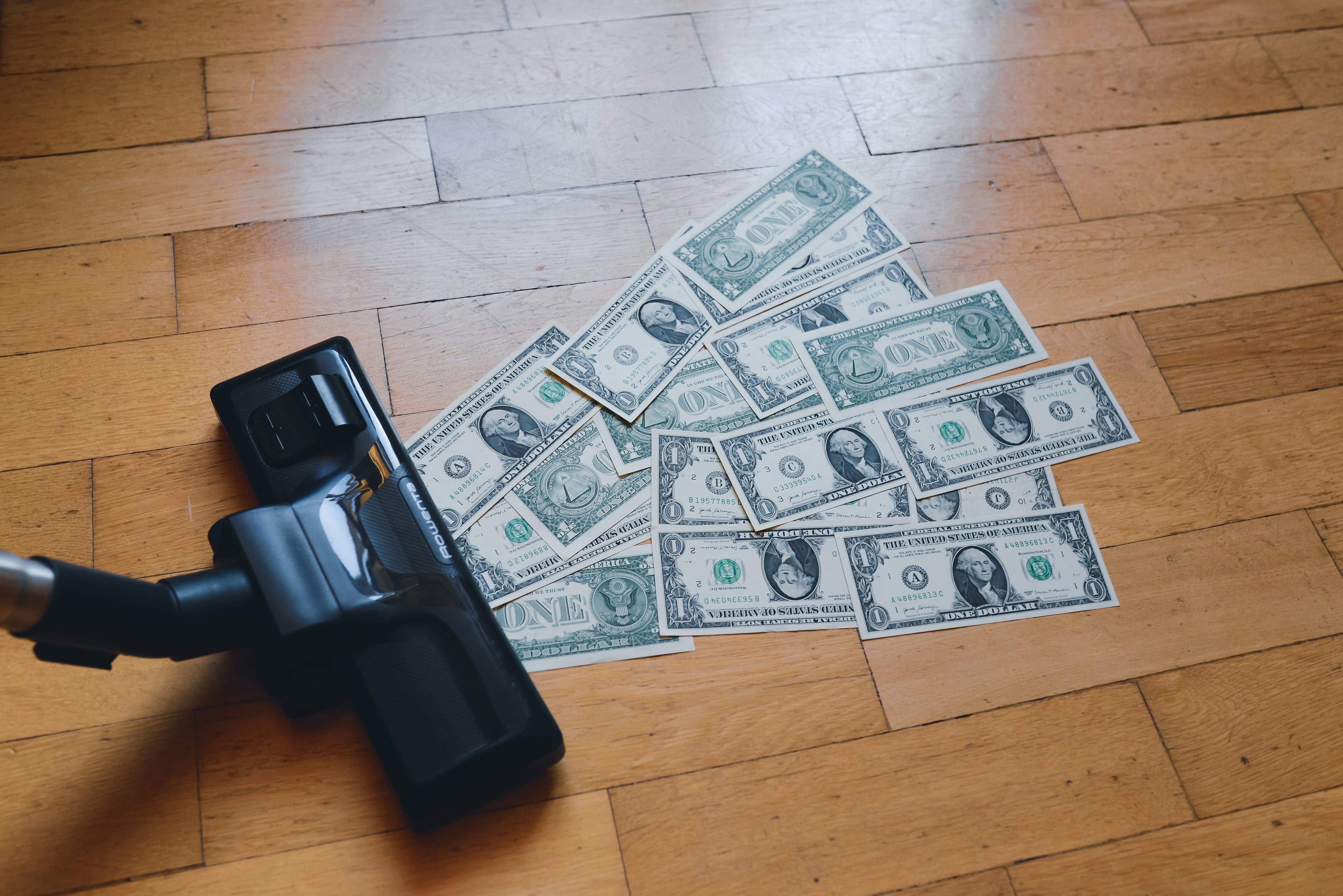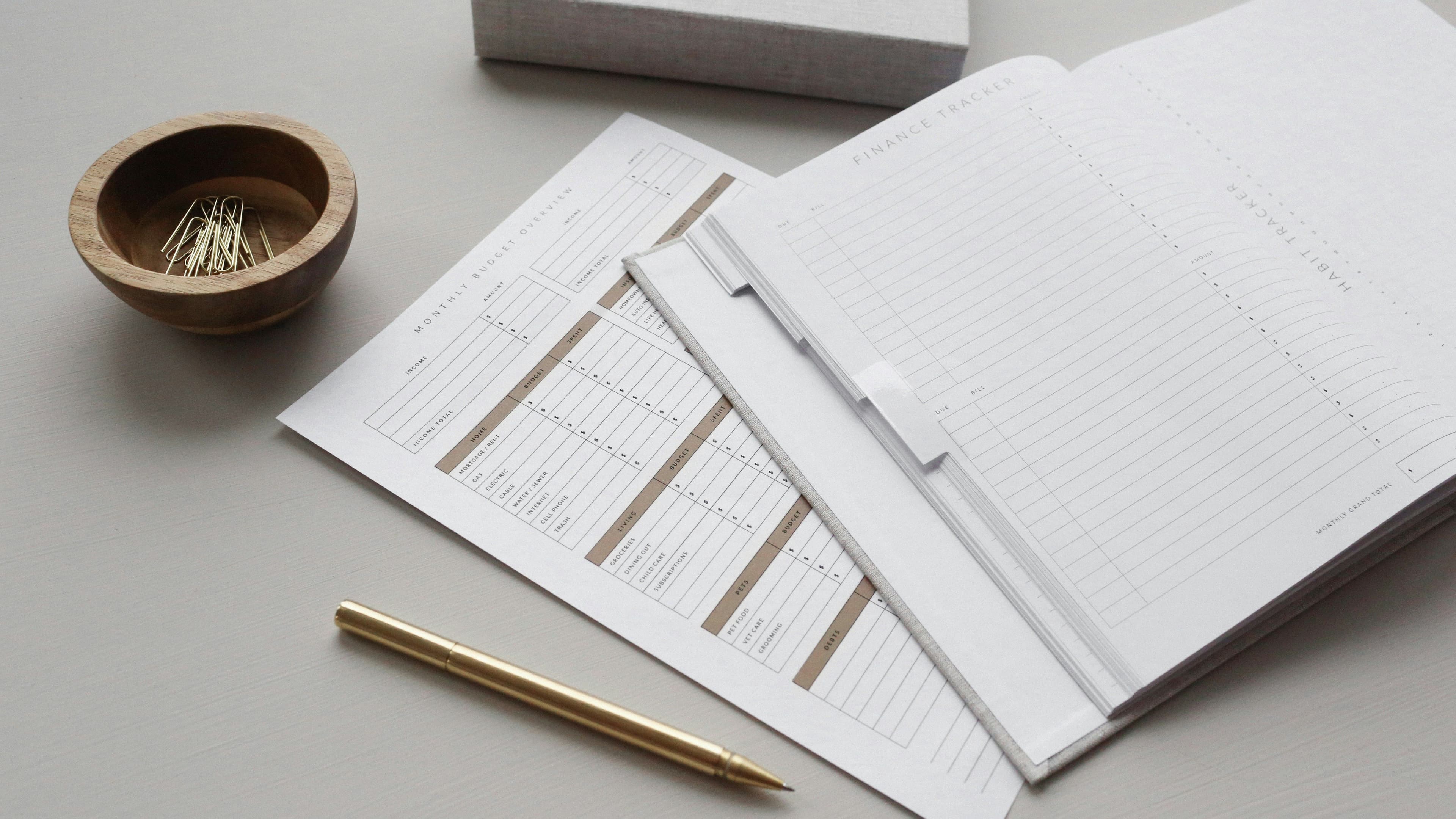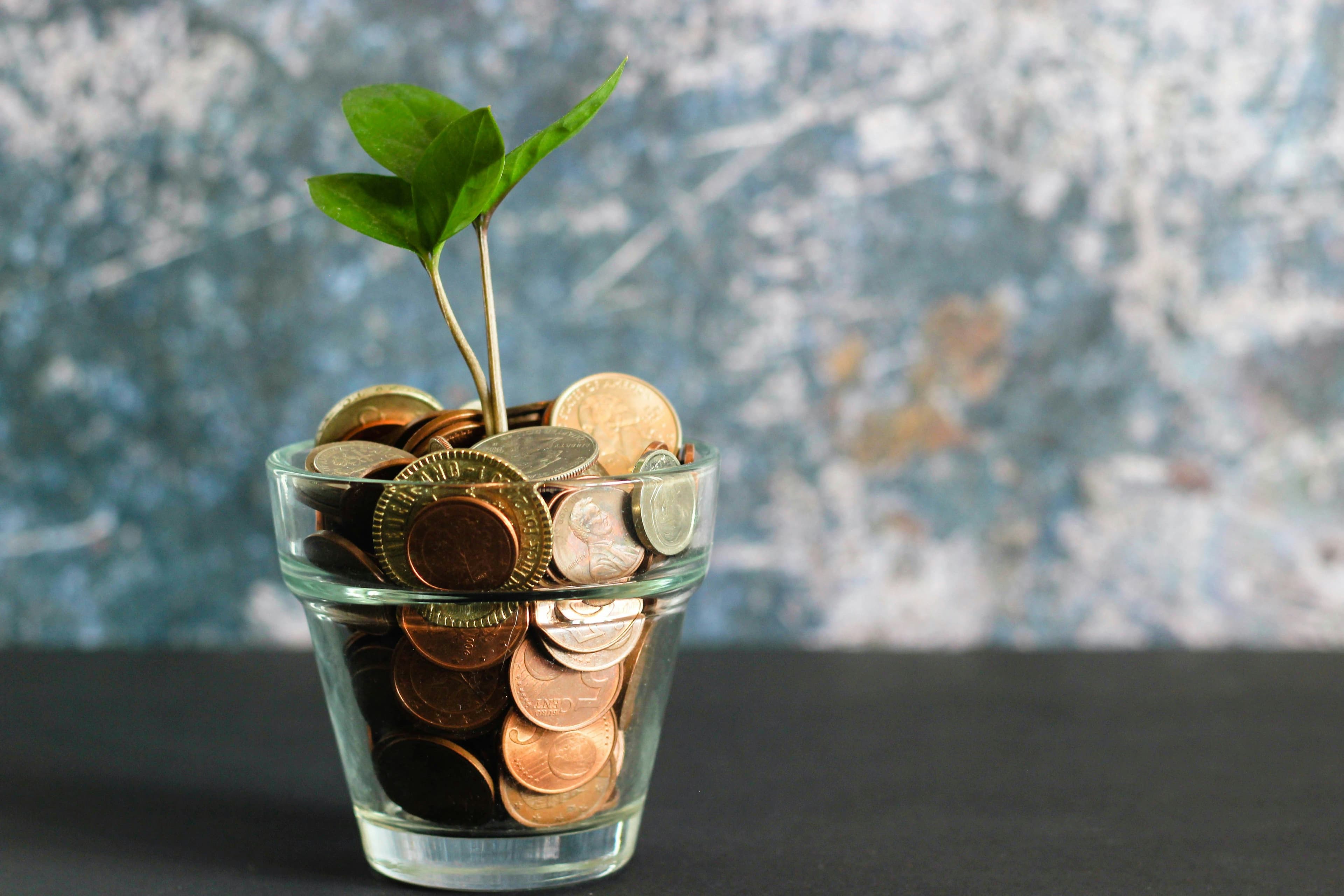7 Money Habits Silently Destroying Your Wealth
Discover the 7 seemingly responsible money habits that are quietly bleeding your wealth away. Learn why these 'smart' decisions keep you poor.

You know what nobody tells you about money? It's not the big disasters that usually wreck your financial future. Not getting canned or having some crazy medical bill or even making one spectacularly bad investment choice.
It's the quiet stuff. The everyday habits that seem harmless, maybe even smart, are slowly draining your wealth away like a tiny leak in your roof that you don't notice until the ceiling caves in.
I figured this out the hard way when I sat down (probably procrastinating on something else) and calculated how much my "small" money habits had cost me over five years. The number? It literally made me feel nauseous. We're talking about enough cash to buy a decent used car, maybe even scrape together a down payment on a house if I lived somewhere reasonable.
Gone. Just... poof.
The absolute worst part? I thought I was being financially responsible during those years. Following all the conventional wisdom, doing what every personal finance blog and my dad told me to do. Turns out conventional wisdom is sometimes just... conventional stupidity.
If you've ever stared at your bank account thinking, "I make okay money, so where the hell did it all go?" this is for you. Because these sneaky wealth-destroying habits are probably camping out in your financial life right now, wearing disguises that make them look like good decisions.
The "Good Saver" Trap That's Actually Making You Poorer
Here's a habit that sounds so responsible it practically has a halo: keeping all your money in savings accounts because it's "safe."
I used to be so proud of this. While my friends were "gambling" in the stock market (air quotes very much intended), I was being sensible. Conservative. The responsible one. My money was earning a guaranteed return; sure, it was pathetic, like 0.05%, but at least it wasn't going down!
Except... it was going down. Every. Single. Day.
Inflation has been running around 3% annually (sometimes more, thanks to 2021-2022 chaos), which means that "safe" money in my savings account was losing roughly 3% of its buying power every year. That $10,000 I had sitting there in 2020? It buys about $8,700 worth of stuff today. I was getting systematically poorer while patting myself on the back for being financially prudent.
It's like putting your money in a slow-motion blender and then congratulating yourself for not using the "pulse" setting.
The fix isn't to become some crypto day-trader or put everything into GameStop calls (please don't). It's understanding that keeping large chunks of money in low-yield savings accounts is actually risky—just a different flavor of risk. You're guaranteed to lose purchasing power over time, which is... not great.
Smarter move: Keep 3-6 months of expenses in high-yield savings for actual emergencies (we're talking 4-5% these days, not that insulting 0.05%), then put the rest to work in diversified investments that have historically beaten inflation. Even boring, conservative portfolios average 6-8% annually over the long haul.

The Budgeting Obsession That Backfires Spectacularly
Okay, this one's gonna ruffle some feathers, but here we go: obsessive budgeting can actually sabotage your wealth-building efforts.
I spent two years—two entire years! creating these incredibly detailed budgets that would make a CPA weep with pride. Color-coded spreadsheets that tracked every dollar down to the penny. I knew exactly how much I spent on coffee (too much), groceries (not enough), and random Amazon impulse buys (way, way too much).
But you know what all that meticulous budgeting didn't do? It didn't increase my income by a single dollar. Not one.
I was so laser-focused on optimizing my spending that I completely ignored opportunities to actually earn more money. Turned down freelance projects because "I didn't have time." apparently I was too busy categorizing my Starbucks receipts to make an extra $500 that week. Makes perfect sense, right?
Don't get me wrong; understanding where your money goes is crucial. If you're dealing with genuinely tight finances, learning to budget when money is tight absolutely makes sense. But there's a point where budgeting becomes sophisticated procrastination disguised as productivity.
You know you've crossed that line when you're spending more time tracking money than making it.
Better approach: Use the 80/20 rule. Track your major buckets (housing, transportation, food, savings) and call it good enough. Spend your mental energy on increasing your income instead of micromanaging whether that latte should be categorized as "food" or "entertainment."
The Credit Card Rewards Game That's Actually Playing You
Credit card rewards programs are designed by some of the smartest financial minds on the planet to make you think you're winning while they systematically profit from your behavior. And honestly? It's working brilliantly.
I fell for this trap so hard I probably deserved a loyalty card for falling for loyalty cards. I had plastic for everything: gas rewards, grocery rewards, travel rewards, and cash back on rotating categories that changed faster than my Netflix password. Felt like I was gaming the system, collecting points and miles like some kind of financial ninja.
The brutal reality? I was spending more money chasing rewards than the rewards were actually worth.
Studies consistently show that people spend 12-18% more when using credit cards compared to cash, even when they religiously pay off the balance every month. Those sweet 2% cash back rewards don't look quite so impressive when you're unconsciously spending 15% more to get them. The math is... not in your favor.
Plus, and this part really stings, all that card optimization takes serious time and mental bandwidth. I was spending hours researching which card to use for which purchase, tracking rotating bonus categories, and memorizing spending thresholds. Time I could have spent, oh, I don't know, actually making money instead of chasing pennies in rewards.
Simpler path: Pick one or two cards with straightforward rewards (no complicated rotating categories, no annual fees you have to "earn back"), use them for everything, and pay them off monthly. Focus your energy on earning more money, not on maximizing the efficiency of your spending patterns.
Life's too short to spend it optimizing credit card usage.
The DIY Everything Mentality That's Costing You Big Time
I used to wear my DIY approach like a badge of honor. Taxes? TurboTax and six hours of confused clicking. Investing? Researched and picked my own stocks like I was Warren Buffett's long-lost cousin. Home repairs? YouTube University, obviously.
This self-reliant approach felt both empowering and frugal. Why pay someone else when I could figure it out myself? I'm smart enough, right?
Wrong. So very wrong.
Because my time is actually worth something (revolutionary concept, I know). And because some things are complex enough that my amateur-hour efforts actually end up costing me real money.
Take taxes. I probably spent 20+ hours every year wrestling with tax software, second-guessing myself, and making sure I didn't miss any deductions. Meanwhile, a competent accountant could have knocked it out in two hours and probably found deductions I didn't even know existed. The money I "saved" by doing it myself was costing me both time and actual tax savings.
Same story with investing. Spent countless hours researching individual stocks, reading financial news, and trying to outsmart the market like some day-trading genius. My results? I consistently underperformed boring index funds while burning way too much mental energy on it. This is especially true for freelancers who juggle irregular income; the complexity of freelance finances often justifies professional help even more.
Smarter approach: Calculate what your time is actually worth per hour, then pay professionals for tasks that are either outside your wheelhouse or not worth your hourly rate. Your time is your most valuable asset; stop treating it like it's worthless.
The "Perfect Timing" Paralysis (AKA Waiting for Godot's Investment Strategy)
This habit is particularly sneaky because it disguises itself as careful planning and prudent caution. I'm talking about waiting for the "perfect moment" to start investing, launch that side business, or make any significant financial move.
I waited two full years to start investing because I was trying to time the market. "It's too high right now," I'd tell myself, watching from the sidelines. "I'll wait for a correction." Meanwhile, the market kept climbing, and I kept waiting for that perfect entry point that never materialized.
Same thing with starting a side business. Was going to wait until I had more time (when?), more money saved up (how much is enough?), more knowledge (about what exactly?), and a better idea (define "better"). Basically, I was waiting until starting a business felt safe and guaranteed, which, spoiler alert, it never did.
The opportunity cost of all this waiting? Enormous. Those two years I spent on the investment sidelines cost me thousands in potential gains. The year I spent "planning" my side business instead of just starting the damn thing cost me real income and valuable learning experiences.
Here's what I wish someone had grabbed me by the shoulders and told me: You'll never have perfect information, perfect timing, or perfect circumstances. Ever. The best time to start was yesterday. The second-best time is right now, today, this minute.
Start with whatever you have, wherever you are, however imperfect it feels. You can start small; even saving $10,000 in a year becomes totally doable when you stop waiting for ideal conditions and start taking action with whatever you've got.
Perfect is the enemy of good. And good is the enemy of done.
The Lifestyle Inflation Trap (It Happens So Fast It'll Give You Whiplash)
This one is particularly cruel because it strikes when you're actually winning financially. You get a raise, land a bonus, and score a better job and instead of your financial situation improving, you somehow end up back where you started. Or worse.
Happened to me so gradually I didn't even notice until it was too late. Got a $200/month raise? Suddenly I "deserved" a nicer apartment that happened to cost $300 more per month. Landed a good freelance project? Time to upgrade from my beat-up Honda (may it rest in peace) to something with functioning air conditioning and Bluetooth. And a $350/month payment.
Each individual upgrade felt totally reasonable. I was making more money, so I could afford slightly nicer things. The problem is that "slightly nicer" has this magical ability to become "significantly more expensive" when you add it all up at the end of the month.
Before I knew it, I was making 40% more than three years earlier but somehow had less money left over each month. All those small lifestyle upgrades had devoured every penny of my income increases plus interest.
The truly insidious part? Once you upgrade your lifestyle, downgrading feels like personal failure. That nicer apartment becomes your new baseline. The car payment becomes just another monthly obligation. You're trapped in a lifestyle that requires your current income just to maintain, which means you're one job loss away from disaster.
Better approach: When your income jumps, immediately redirect at least half of that increase toward savings or investments before you have a chance to spend it. Live off the other half if you want. This way you get to enjoy some success while still building actual wealth.

💡 50 Digital Side Hustle Ideas
Get your free guide packed with 50+ profitable digital side hustle ideas you can start today — even if you're a complete beginner!
We respect your privacy. Unsubscribe at any time.
The "Financial Guru" Following Habit (Or: How I Learned to Stop Worrying and Love FOMO)
Social media has birthed this entire ecosystem of financial influencers promising to reveal the "secrets" of wealth building that "they" don't want you to know. And I fell for it. Hard.
Followed dozens of them. Bought their courses (so many courses). Implemented their strategies with religious devotion. Switched investment approaches every few months based on whose content seemed most convincing that particular week.
One month I was all-in on real estate investing after binge-watching some guy's YouTube channel about house flipping. Next month I was convinced cryptocurrency was the only path to financial freedom. Then I discovered options trading (yikes), then flipping cars (double yikes), then starting an Amazon FBA business (the holy grail of passive income, apparently).
The problem? I never stuck with any single strategy long enough to see actual results. I was constantly chasing the next shiny financial strategy instead of focusing on the mind-numbingly boring fundamentals that actually build wealth over time.
Plus, and this part should have been obvious, most of these "gurus" make their real money selling courses and content, not from the strategies they're supposedly teaching. Their actual business model is getting you to buy their stuff, not making you wealthy. Classic bait and switch.
The reality? Wealth building is boring as hell. It's automating investments, living below your means, steadily increasing your income over time, and being patient for literally decades. There are no secrets, no shortcuts, no "one weird tricks that banks hate."
Stop following financial gurus and start following basic principles that have worked for generations: spend less than you earn, invest the difference in low-cost index funds, and give it time to compound. Rinse and repeat for 30 years.
Revolutionary, I know.
The Reality Check That Changes Everything (Or Should)
Nobody wants to admit this, but most of these wealth-destroying habits feel genuinely good in the moment. They make us feel responsible, intelligent, or in control. That's exactly why they're so dangerous; they're wolves in sheep's clothing.
The habits that actually build wealth? They often feel uncomfortable at first. Investing feels risky when you're used to "safe" savings accounts. Paying for professional help feels expensive when you're used to DIYing everything. Starting before you feel ready feels reckless when you're used to endless planning and preparation.
But here's the thing about compound interest: it rewards action, not perfection. It doesn't care about your feelings or your comfort level or whether you've done enough research. Every day you postpone fixing these habits is another day that compound growth is working against you instead of for you.
You don't need to revolutionize everything simultaneously. Pick one habit from this list whichever one made you squirm the most while reading, and commit to changing it this month. Not when you have more bandwidth, not after you finish your research project, not when the stars align. This month.
Your future self is counting on the decisions present-you makes today. Make them count.
Because the difference between financial stress and financial freedom isn't about making more money or discovering some secret strategy that Wall Street doesn't want you to know. It's about recognizing these subtle wealth-destroying habits and having the courage to change them, even when change feels uncomfortable.
The choice is yours.
But the clock? It's ticking.
About The Author

SEO consultant
Austin, USA
Maya Rodriguez is an SEO consultant and digital marketing strategist with over 12 years of experience helping businesses improve their online visibility and organic traffic. Based in Austin, Texas, she's worked with over 50 clients ranging from local startups to Fortune 500 companies, achieving an average organic traffic increase of 180% across her client portfolio... Full bio
You might also like




